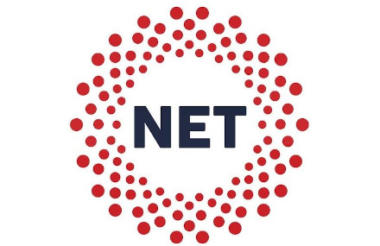The National Emergencies Trust (NET) has been criticised for asking grant assessors “with lived experience in marginalised communities” to work for free.
The campaigning group #CharitySoWhite shared a screenshot of the advert on Twitter on Friday, saying that it is “unacceptable” and “another reminder of the structural racism inherent in our charity system”.
NET said that the ad was issued “in error without appropriate review and sign off”, and has apologised.
#CharitySoWhite said that grant assessors in London can earn £44,000 a year, and that people with lived experience should not be asked to do it for free, especially if there are others who are being paid for doing the same work.
The job advert said: “NET recognises that for many communities facing marginalization and disadvantage, the increased risk of hardship results from complex, intersecting factors – identity, circumstance – which people with lived experience are well positioned to recognise.
“This is why NET is committed to building an assessor group across a range of identities protected under the Equality Act 2019.”
It said that the role was voluntary, requiring five hours of work per week throughout June. The ad has since been deleted, but the Google Form it linked to is still available online.
NET is currently running an emergency appeal to support charities and communities during the Covid-19 crisis. The appeal has raised more than £60m, which is being distributed locally by the UK Community Foundations umbrella body to its 46 members.
Given the impact the crisis is having on BAME communities, #CharitySoWhite has been calling for 20% of emergency funds to be ring-fenced for BAME-led organisations. Its open letter has been signed by almost 150 organisations and individuals.
Last month, the organisation published an update on its progress in engaging with funding organisations and umbrella bodies on this, which included criticism of NET’s approach. It said that while NET has shown “commitment and intention” to address the impact of the crisis on BAME communities, this has not been “matched with urgent enough action”.
‘We apologise for the error’
John Herriman, chief executive of NET, said: “We have been exploring all opportunities to recruit grantmakers, both paid and unpaid. Unfortunately, an advertisement was issued in error, without appropriate review and sign off. This should not have happened. We understand why this would have caused concern and apologise for the error.
“We are 11 weeks into our first ever appeal during an extremely complex crisis and are moving at pace to ensure that urgent needs around the UK can be met. However, we also recognise significant injustices exist within our society and are currently taking the opportunity to reflect on our approach to the next stage of the appeal.
“We are deeply committed to ensuring that the way we operate reflects the communities that we serve.”
‘Funders should listen’
#CharitySoWhite said: “CharitySoWhite is demanding that NET pay grant assessors with lived experience on par with others who are managing grant applications at this time.
“This kind of pay disparity comes from knee jerk, tokenistic responses and reinforces the socio-economic barriers that keep the marginalised communities they are purporting to reach out of the sector.
“If the charity sector wants to do better, it needs to take an anti-oppression lens and embed this in their working practices. It must do the work of dismantling the values, the structures and the behaviours which uphold the structures that discriminate in this way.”
Speaking of Channel 4's initiative to raise money for NET by broadcasting the 1966 World Cup Final yesterday, #CharitySoWhite added: “We do not trust that the funds raised will be distributed to the communities most targeted by this crisis.”
It suggested that instead of donating to NET, people should donate to Resourcing Racial Justice.
Caroline Mason, CEO of the Esmée Fairbairn Foundation, tweeted: “The expertise that people and communities bring is constantly undervalued. Funders should listen, learn and show the same respect as they would to other advisers they depend on.”











